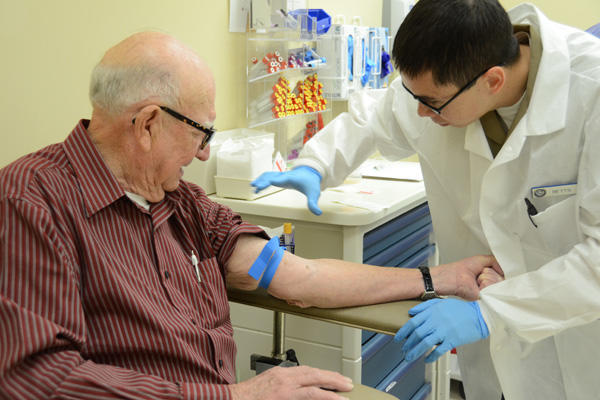Veterans Affairs Secretary Bob McDonald said the department recognizes that 40 miles as the "crow flies" does not translate into 40 miles as a veteran drives, so the department is reinterpreting its rules to enable more vets to take advantage of nearby private health care options.
Under the Veterans Choice Act, veterans living more than 40 miles from a VA medical facility have the option of going to a local health care provider. But under the law – as originally drafted – that was 40 miles as a straight line from the veteran's home to the VA facility.
But real-world travel is not always a straight line from one point to another, so that 40-mile trip – or one even shorter "as the crow flies" – may actually go well beyond that, McDonald said.
"We've determined that changing the distance calculation will help ensure more veterans have access to care when and where they want it," he said in a statement announced on the department's website Tuesday morning.
Now, distance will be calculated based on driving miles from the veteran's home to a VA facility.
The announcement was released hours before the Senate Veterans Affairs Committee convened a hearing on complaints over the distance requirement.
"This is a more accurate reflection of the distance our veterans live from VA medical facilities," Sen. John Boozman, R-Arkansas, said Tuesday afternoon in advance of the hearing.
Under the Veterans Choice Act veterans eligible for VA health care began being issued Choice Cards. Starting in early November, the Choice Cards went out to veterans living more than 40 miles from a VA health care facility. About two weeks later the VA began shipping the cards to veterans waiting longer than 30 days for an appointment at a VA facility.
The distance problem became apparent almost immediately, however, as veterans living in rural and remote areas found themselves excluded from the Choice Card option because – according to the map – they were within 40 miles of a VA hospital or clinic.
That concern was made clear in early March when the Veterans of Foreign Wars released its own initial report on the Choice program. The VFW said the 40-mile eligibility requirements "do not align with the realities of traveling to a VA medical facility."
"[Veterans Choice] requires VA to use the geodesic, also known as ‘as the crow flies,' distance between a veteran's residence and the nearest VA medical facility when determining geographic eligibility," the report stated. "Veterans are accustomed to reporting their driving distance in terms of miles traveled when applying for beneficiary travel benefits – one of VA health care's most popular benefits. Thus, it is illogical to veterans that they can qualify for beneficiary travel of 40 miles, but cannot qualify for the Veterans Choice Program as a 40-miler."
The VFW report also raised another concern with the VA's 40-mile rule – VA facilities within the 40 mile barrier do not always have the facilities needed for treatment.
"Veterans must be afforded the opportunity to obtain care closer to home if VA care is not readily available, especially when veterans have an urgent medical need that can be addressed more quickly through non-VA care," the report argued.
About 80 percent of the 1,068 veterans the VFW surveyed were not able to use the Choice Card. These included veterans barred by the 40-mile rule, or those who could not be seen for an appointment within 30 days.
Rep. Jeff Miller, R-Florida, who chairs the House Veterans Affairs Committee, called McDonald's decision "a welcome, commonsense change."
But Miller said it should have been done "before VA attempted to take money away from the choice program, claiming a lack of interest among veterans."
McDonald has said he wants the authority to move money from the Choice program into other VA programs, as needed. He said VA is finding that veterans have shown less interest in using non-VA care than it was first assumed.
McDonald argues that it makes no sense to keep money in a program that will not be spent when it could be used where it is needed.
Miller sees the move as an attempt to undermine the intent of the Choice Act.
"In passing the [Choice Act] Congress and the president could not have been more clear: veterans shouldn't have to endure interminable waits or drive hundreds of miles just to see a doctor," Miller said. "Veterans deserve more choices when it comes to their health care decisions, and it's up to VA to start providing them, just as Congress and the president intended."
-- Bryant Jordan can be reached at bryant.jordan@military.com





























